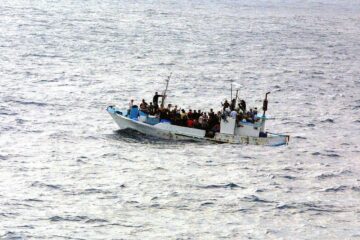![]()
Introduction:
What Sanction Means?
A correctional demonstration taken by one country against another country that has abused a Treaty or International law is called SANCTION.
The expression “sanctions”[i] in the field of law and lawful hypothesis, are considered to be punishments or some other methods for law Requirement Instrument that is utilized to give an incentive to the dutifulness of the law, or any guideline or some other arrangement of the executives or rules as given by the State.
Sanctions be levelled as a result of illegal activity or to achieve or to accomplish a foreign policy/diplomatic aim[ii]. They are normally passed by an act of government, or by international authority: a United Nations Security Council Resolution, for example:
Many sanctions lists include targets involved in the criminal financing of terrorist activities. In the United States of America, for example, the Patriot Act prohibits US businesses from providing ‘material support’ to groups suspected of terrorism, while the UN Security Council committee enforces legislation such as the Al Qaida and Taliban Order (2006), which serves a similar function. More generally, sanctions listings aim to counter:
- Terrorism and Terrorist financing
- Narcotics trafficking
- Human rights violations
- Weapons proliferation
- Violation of international treaties, e.g arms embargo
- Money laundering activities
It at first started from the “practical sanction “. This sort of assent is the sort of authorization that was forced as a sovereign’s grave announcement on an issue whose essential significance was the power of Fundamental law. In the late history of the Roman Empire, it was alluded to as an Edict that was explicitly given by the Emperor. It was a lawful strategy that would allude to the Theoretically Untenable Times of the land.
Kinds of Sanctions
The term sanction also can describe disagreement and condemnation.
In Criminal Law[iii], authorization is a discipline for a criminal offence. The criminal assent for a criminal litigant fluctuates as indicated by the wrongdoing and incorporates such measures as death, imprisonment, PROBATION, people group administration, and money related fines.
This sanction may incorporate the inconvenience of a fine, punishment or confinement. It might likewise be the forswearing or evacuation of something that is upsetting or unwanted. These approvals are forced upon by power. Such endorses are regularly noted to be forced upon a specific individual or a gathering of people. Any result which stays unapproved or which are managed with no breakage of rules and guidelines, don’t fall under the class of corrective disciplines.
In Civil Law[iv], a sanction is that part of a law that assigns a penalty for violation of the law’s provisions. It is identified with the common wrongs and alludes to the non-criminal parts of assents. Instances of common wrongs could be a penetrate of agreements, misdeed, breaking of trusts, or even break off the semi agreements, or matters identified with proprietorship and ownership (other than property-related violations, for example, robbery or defacement). As a general rule, the punishment forced upon the miscreant is a monetary punishment by the regulatory body of the court or the administration through their enactments. It doesn’t include serious disciplines since it is generally worried about the remuneration of the cash, removed by the miscreant and to offer it to the State or the distressed party.
In Global Sanctions[v] an extraordinary type of sanctions taken by one nation against another. Global authorizations are measures that are intended to bring a reprobate or rebel state into consistence with anticipated principles of lead. Worldwide sanctions might be either non-powerful or military. Military sanctions can extend from slicing off admittance to restricted strikes to full-scale war. Non-intense global sanctions incorporate discretionary estimates, for example, the withdrawal of a minister, the cutting off of strategic relations, or the documenting of a dissent with the UNITED NATIONS; budgetary endorses, for example, denying help or slicing off admittance to monetary organizations; and financial authorizes, for example, incomplete or absolute exchange bans. The U.N. Security Council has the power to force financial and military sanctions on countries that represent a danger to harmony.
There are several types of international sanctions.
- Diplomatic Sanctions: These sorts of Sanctions are taken to declare political dismay or objection with any far off nation, against specific acts submitted by it through the political methods or strategic methods to not influence the military or the financial methods. These Sanctions incorporate the non-appearance of the prominent gatherings, or eliminate any staff or pull back any strategic mission.
- Financial Sanctions: These sorts of Sanctions are the ones that differ contingent on the circumstance. Financial authorizations shift from forcing the expenses or obligations on the products or impeding the fare of particular sorts of merchandise from the nations that don’t have excellent relations with one another or a full maritime bar of the nation’s fares through the ocean by obstructing the ports. This can include a total blockage of the products or fractional blockage. The advantage of this sort of assent is that it is utilized to diminish the significance of multilateral participation, which all things considered is commonly hard to acquire. The objective nation, for this situation, is commonly a lot littler in a geological territory or is financially frail or has a flimsy type of governmental issues which makes it simpler to force the approvals. Likewise, the nation which approves such burdens, for the most part, spares itself a truly significant expense of such endorses.
- Military Sanctions: These sorts of sanctions can likewise be of a couple of sorts. They can extend anyplace from focused military strikes to less forceful types of strikes to corrupt a country’s traditional or non-customary capacities. They could likewise incorporate removing the flexibly of arms.
- Sanctions on Individuals: The United Nations expresses that International authorizations can be actualized and forced upon the pioneers who are political or some other individual characters. They can likewise be forced on monetary people.
- Assents on Environment: The authorizations identified with the issues of the earth incorporate both political and monetary methods as these all are related. The limitations upon the exchange and the obstructions identified with the exchange are the key variables in such cases as they are associated with the issues that the world appearances, for example, the issues identified with the imperilled types of the world, or exhaustion of the ozone layer or synthetically imbalanced substances that cause mischief to nature. These sorts of approvals identified with nature are generally new. In any case, the on-going concerns in regards to nature, and different issues, have energized the legislature, the legislators, and others to investigate the issue and have dynamic cooperation in the issues and manage them.
These measures are most effective in dealing with international issues especially in the case of maintaining international peace and restoring good faith. It also helps in maintaining security, in the case where it is used as a part of the comprehensive strategy it helps to ensure peace-keeping, peace-building and peace-making. Contrary to the popular belief that sanctions are very disruptive or dangerous for a regime, it is pertinent to note that these sanctions are designed to support the government and the regions that are working towards the peaceful transition. Many sanctions have been applied to promote the support of peaceful transitions, deterrence of the non-constitutional changes, constrain terrorism, protection of human rights, and finally to promote non-proliferation.
Relevance Of Sanction
Sanctions generally have many different or multiple goals and targets in their minds. The body that imposes such sanctions generally knows who they are imposing it upon. During the imposition of a sanction, the general simple punishment is mostly out of question. To judge the effectiveness of a sanction, it requires various kinds of thorough processes that need to be followed. It also includes the analysis of the type of goals of the sanction that is chosen to be imposed and also, what impacts do these sanctions have on the individual or group of individuals or on the countries.
The significant part while forcing a sanction is to not force conflicting objectives of authorization, as this will end up being frail and insufficient. In the majority of the cases, these are forced for the “flagging” purposes, primarily to serve certain partners or even outsiders, or in any event, for the instances of the homegrown crowd.
Global sanctions that are expected to change certain approaches of the focused on nations or regions are more troublesome in light of the fact that a particular sort of law is should have been organized explicitly for that very reason. Subsequently in such cases, the authorizations that should be forced must be brisk and far-reaching.
The pertinence of sanctions lies in the way that with no assent, it is difficult to screen the genuine aggravations in common society. On the off chance that there are no authorizations, it is beyond the realm of imagination to expect to distinguish the possible danger and furthermore the bad behaviours of a wrongdoer. Each authorization is forced rapidly so as to maintain a strategic distance from such deferral and to boost such an effect.
The supporters of the approvals have consistently contended on the way that such endorses, regardless of whether they do influence the residents of a nation, they possibly influence the transgressors everywhere and afterwards whenever forced upon global nations, such residents are now the weak gatherings and underestimated or pressurized by their own administrations. It is additionally an excellent device to gauge and keep a check upon the individuals, instead of making no move by any means. Approvals have consistently discovered approaches to work in the public eye particularly while holding under check the conduct of its kin. Sanctions have been a powerful strategy to avoid such a future danger to the individuals of a nation, either remotely or inside
Conclusion
Through this article, we can take note of that approvals are an inconvenience of any punishment or such an admonition upon an individual, a gathering of people, or even a totally extraordinary nation. Sanctions have been a ground-breaking system to keep away from such a future threat to the people of a country, either distantly or inside. They are levelled as a punishment to criminal behaviour, accordingly forcing severe and tough guidelines of punishments. In this manner, the sanctions are either passed by the legislators of a nation or by a portion of the administrative standards and guidelines, or by the courts that force punishments on the equivalent.
References:
[i] https://www.lexico.com/definition/sanction
[ii] Jonathan Masters Last updated August 12, 2019 https://www.cfr.org/backgrounder/what-are-economic-sanctions
[iii] https://www.encyclopedia.com/social-sciences/encyclopedias-almanacs-transcripts-and-maps/criminal-sanctions
[iv] https://blog.rrc.co.uk/2014/07/07/civil-sanctions-vs-criminal-sanctions-for-environmental-offences/
[v] https://complyadvantage.com/knowledgebase/what-are-sanctions/



0 Comments